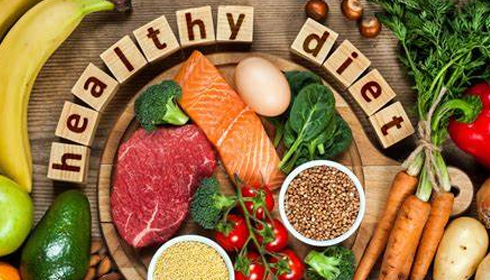
Just cutting out ultra-processed foods is not enough to make a diet healthy: Study
According to the findings of a recent study presented at the annual meeting of the American Society for Nutrition, eliminating items that are highly processed does not necessarily result in a healthier diet. Based on the findings of this study, the type of food is more significant than the method of cooking.
Researchers used the NOVA classification method, developed by researchers at the University of São Paulo, categorizes foods into four groups: Unprocessed or Minimally Processed Foods, Processed Culinary Ingredients, Processed Foods, and Ultra-Processed Foods.
According to the classification, while unprocessed foods are natural, minimally processed, and contain no added substances, the processed foods are made by adding ingredients to unprocessed foods, while ultra-processed foods are industrial formulations with multiple ingredients. The NOVA classification helps analyze dietary patterns and their impact on health outcomes.
Researchers looked at two different Western diets: one with a lot of processed foods and one with a minimum of them. They were surprised to find that the choice with less processing didn't have any extra health benefits, but it was more than twice as expensive and went detrimentally faster.
"This shows that it is possible to eat a low-quality diet even when choosing mostly minimally processed foods," said Julie Hess, PhD, a research nutritionist at the USDA-ARS Grand Forks Human Nutrition Research Centre and the study's leader. "It shows that diets with and without more processing can be equally nutritious—or not—but the processed diet may be cheaper and last longer."
Mark Messina, PhD, who oversees nutrition science and research at Soy Nutrition Institute Global, presented these findings at NUTRITION 2024, the annual meeting of the American Society for Nutrition, which is underway in Chicago from June 29 to July 2.
Earlier studies showed that ultra-processed foods may still make up the majority of a healthy diet that meets dietary standards. This new study adds to those findings. This study attempted to answer the opposite question: Can a low-quality diet primarily consist of foods that have undergone poor treatment?
To look into this, the researchers made two menus: one was less processed and got 20% of its calories from ultra-processed foods, and the other was more processed and got 67% of its calories from the same foods. The Healthy Eating Index gave both meals scores of 43 to 44 out of 100, which means they did not follow the Dietary Guidelines for Americans very well. Each person would have to pay $34.87 per day for the less processed food and $13.53 per day for the more processed food. Also, the median time until expiration for the less-processed foods was 35 days, compared to 120 days for the more-processed foods.
The study underscores the intricate relationship between food preparation and its nutritional value. Hess pointed out that some ultra-processed foods, like unsweetened applesauce, ultrafiltered milk, liquid egg whites, and some types of canned tomatoes and raisins, are still high in nutrients.
"This study's findings suggest that creating a nutrient-dense diet entails more than just taking NOVA's definition of food processing into account," he said. "The community of nutrition researchers needs to better characterise the concepts of 'ultra-processed' and 'less-processed' foods."
This study says that limiting ultra-processed foods is not the only way to make sure you eat a healthy diet. Instead, we should focus more on the type and quality of the food we eat.